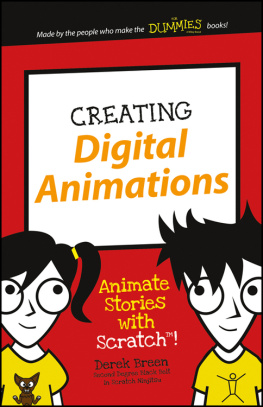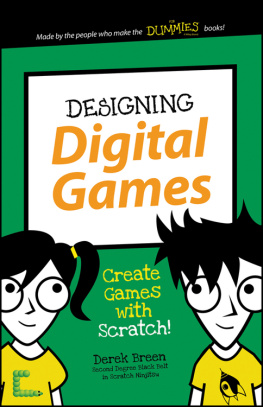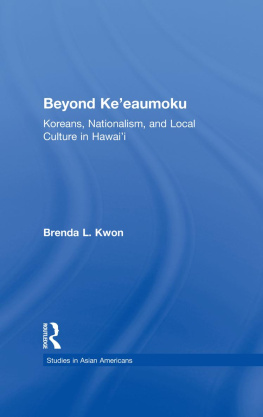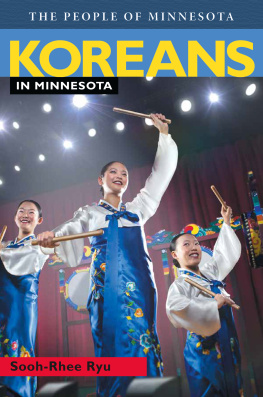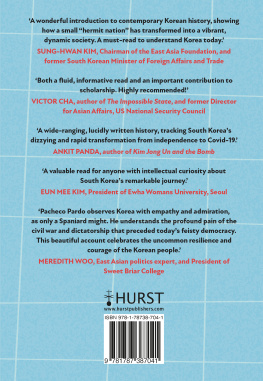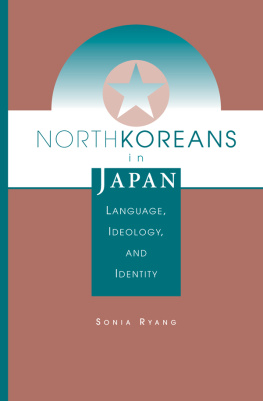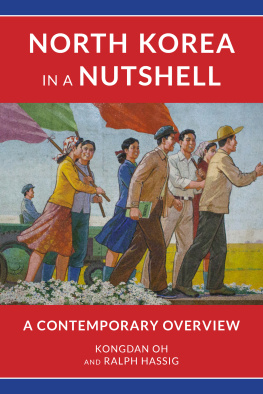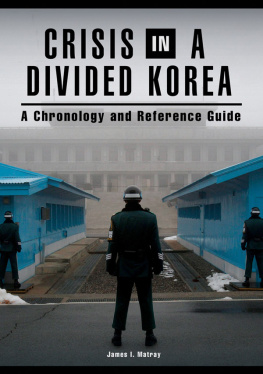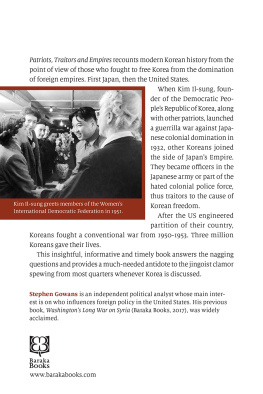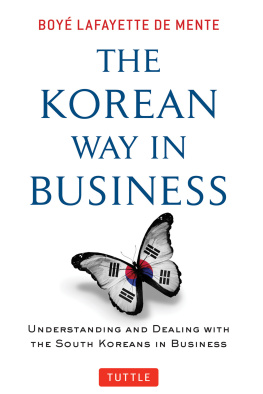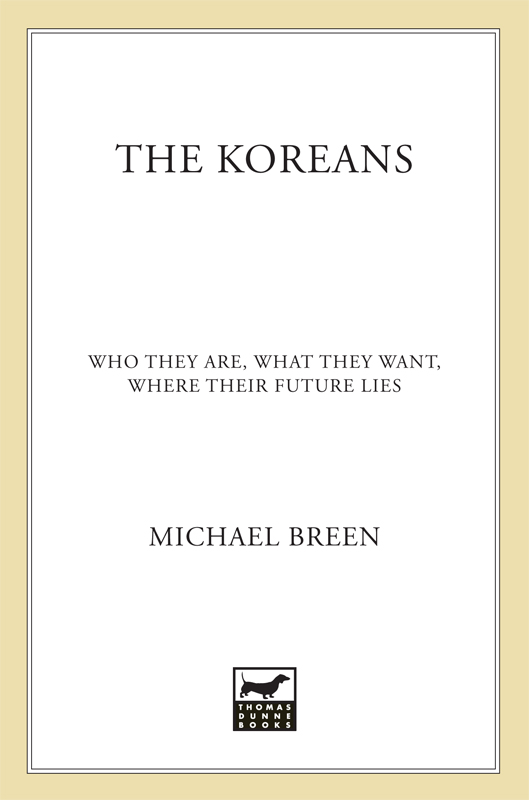
The author and publisher have provided this e-book to you for your personal use only. You may not make this e-book publicly available in any way. Copyright infringement is against the law. If you believe the copy of this e-book you are reading infringes on the authors copyright, please notify the publisher at: us.macmillanusa.com/piracy.
Contents
For Mum and Dad
Preface
A relative of mine once asked me, Korea? Thats part of Vietnam, isnt it? The question startled me because, after several years in the country, I had started to feel that it was the centre of the world.
Korea has that effect on you. Its people are so dramatic, so passionate, and the twentieth-century issues they have thrashed around with colonialism, communism, political violence, war, industrial development, democracy, human rights seem to be so important, that it is easy to forget that the Koreans are not well known.
Although theirs is a middle-size country north and south Korea are roughly the same size as Britain and have a combined population of almost 70 million Koreans feel small, because they live amid giants. Their geopolitical neighbours are China, Japan, Russia and America, who between them have done to Korea just about every nasty thing that can be done to a smaller country. The Koreans learned to roll up into a ball and let themselves be kicked in order to survive. It is no wonder that they conceive of themselves as small.
Although only recently arrived to our attention, they are in fact an ancient and complex people, whose rise out of poverty into democratic capitalism is one of the inspirational themes of our age. Their authentic history stretches back to the year AD 668, which makes them one of the worlds oldest nations, and the records of earlier history go back almost two thousand years before that. This history has some notable peaks. The Koreans had a civilising influence on ancient Japan. They were the first in the world to use metal movable type for printing books. They produced some of the worlds finest ceramic art. But Koreans themselves do not talk so much about these achievements. They are in their own view a people made anew, reborn from a past they would sooner forget.
They are a vigorous and expressive people. But they also bear a terrible sadness and anger because of their history, which they can neither express nor completely shake off, and which many outsiders fail to understand. Foreigners who have entered that world of the Korean heart, through marriage or long exposure to the culture, find themselves in love and in hate with the people, plunging to great depths when touched by their passions, and released to the surface again in paroxysms of rage when expelled. For Koreans are a closed shop. There is probably no more homogeneous a country on earth. You feel that you are forever the guest, never the family member.
Guests are not supposed to give advice, but Korea is one of those countries that people always seem to be lecturing about how to behave and manage themselves. Close up, Koreans seem to always be making mistakes. The incredible thing is that they have created the worlds 11th largest economy, and are becoming democrats, without having taken any of our advice.
At the time of writing, the North is suffering from extreme food shortages and the South is recovering from the near-collapse of its financial system. My experience of previous Korean crises suggests to me that the South will overcome its problems. It may eventually have no choice but to help the North to deal with its difficulties. The Koreans seem to possess a vigour so strong that it will probably propel them even more to the global centre stage in the next generation.
If this assessment is half accurate, it reinforces our need to know more about them. Who are these people who are entering our lives, as our employers and business partners, who study in our colleges and who make our cars and toys? What makes them different from the Chinese and the Japanese? Where have they come from and where are they heading? This book is an attempt to address our ignorance of the Koreans and answer these questions. It represents an effort to understand a passionate nation that is barging into a crowded world with its elbows out, demanding membership in the once-exclusive whites-only club of major powers.
The emphasis of this book is on the nature and values of Koreans and on the recent history which underlies their national development. It begins with an outline of Korean values and highlights some features of the national character. Part Two deals with the countrys long and difficult history and the more recent traumas of colonisation by Japan and division into communist North and pro-Western South. Parts Three and Four are about how the south Koreans emerged from hopelessness and wrought miracles of change. After being written off as backward and incapable of development, they moved out of the paddy fields and into Silicon Valley in one generation. This growth, through the 1960s and 1970s, led in the 1980s to a historic shift from dictatorship to democracy. These processes continue and are laying the groundwork for possibly another miracle, reunification of the divided nation.
I have not especially studied, nor have any particular theories of, national psychology, or economic and political development which form the basis for these chapters. I write from a personal view about the character and achievements of the Koreans. It is mostly about the south Koreans, not the north Koreans, because they have been the miracle-makers and also because they are the people who are impacting our lives. The reader should assume that, unless otherwise stated in endnotes, quotations are from interviews conducted between 1982 and 1998.
The Koreans are not easy to understand. I lived for fifteen years in Seoul, for most of that time as a journalist and later as a business consultant, and have relied during that time on the expertise of others. They are too numerous to mention here. But for their specific input on this book, I would like to thank: Peter Bartholomew, Brian Barry, Steve Bradner, John Burton, Craig Campbell, Cho Gab-je, Jim Coles, Daniel Davies, Martina Deuchler, Aidan Foster-Carter, James Freda, Steve Glain, John Gustaveson, Jim Harting, Hong Suhn-kyong, Thae S. Khwarg, Ken Kaliher, Kil Jeong-woo, Kim Dae-jung, Kim Jung-eun, Kim Sang-hyun, Lynne Kim, Catherine Lee, Lee Han-woo, Lee Jung-hee, Lee Kyu-uck, Lee Na-mi, Lee Yoon-sang, Lee Young-ho, Mallory Leece, Bryan Matthews, Clare McVey, Moon Jin-ho, Moon Seung-yong, Moon Tahn IL, Laxmi Nakarmi, Noh Tae-hoon, Pai Hyung-il, Paik Sang-chang, Park Yong-soo, Park Young-sook, Paul Rogers, Roh Jae-won, Roh Sungil, Bill Rylance, Mark Setton, Michael Schuman, Shim Jae-hoon, Suh Joon-sik, Colin Turfus and Stephen Wright.
I should especially like to express my gratitude to John Burton, who, with Charles Scanlon, initially encouraged this project, and who spent a considerable amount of time going through the manuscript and offering ideas to improve it. I am also grateful to William Chasseaud, Aidan Foster-Carter, Steve Glain and Catherine Lee, who all read the whole or parts of the manuscript and pointed out mistakes and weaknesses. As they are all experts, I can confidently blame them for any that remain.
For additional help, thanks to Paul Barker, Richard Barlow, Choo Younkong and Kim Chin-wha. Harvey Reynolds of the US 8th Army library at Yongsan, Seoul, and Woo Jae-bok of the Korea Herald library were also very gracious with their time.


